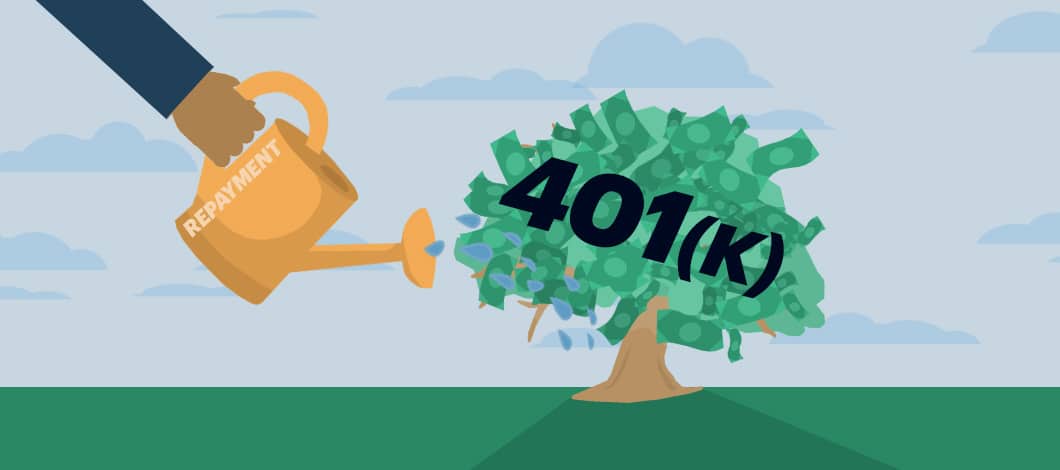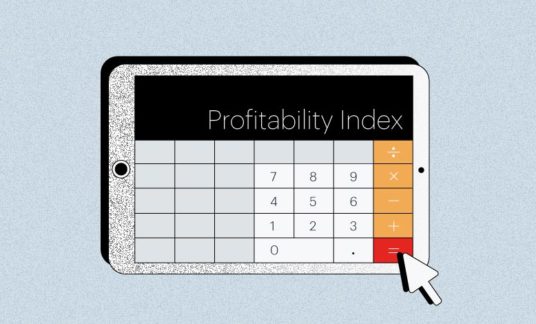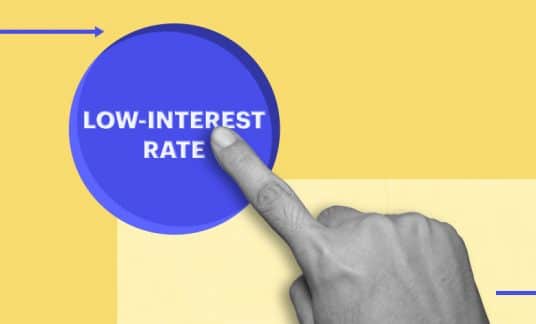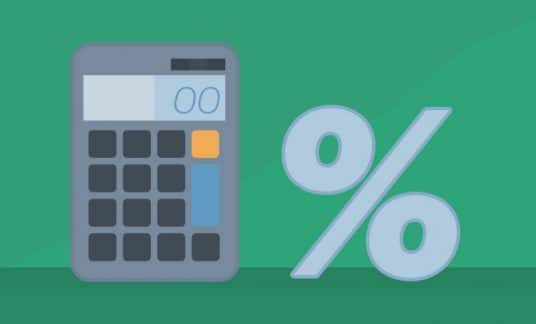A 401(k) plan lets employees save pretax dollars from their paychecks to help prepare for retirement. It’s meant for long-term savings but more than 20% of employees will have an active 401(k) loan at any point in time. So, how does a 401(k) loan work — and why do people take out 401(k) loans?
Here are the top reasons employees borrow from their retirement plan:
- Paying off debt
- An emergency expense
- Home purchase or home renovation
- Paying bills due to job loss
- Education costs
- Special events, such as a wedding or family vacation
Let’s walk through how a 401(k) loan works, explain 401(k) borrowing rules and repayment rules, examine the pros and cons and show you how 401(k) loans can benefit employers and the self-employed.
What Is a 401(k) Loan?
A 401(k) loan lets employees borrow money that they have saved in their retirement account. In essence, they are lending money to themselves. They are required to repay the loan and interest on the loan, but the money will be paid back into their account.
Like a conventional bank loan, some terms and conditions must be followed, including a repayment plan based on the amount and interest rate offered.
How Does a 401(k) Loan Work?
The U.S. Department of the Treasury governs borrowing money from 401(k) plans and sets 401(k) loan limits. Employees can borrow up to half of the money they have saved up to a maximum of $50,000. If 50% of a vested account balance is less than $10,000, Internal Revenue Service (IRS) rules allow participants to borrow up to $10,000.
Within these parameters, employers can set their own requirements as well, such as how many loans can you take from your 401(k) at any one time.
Other 401(k) borrowing rules by employers might include:
- Whether they allow employees to take a loan of out a 401(k)
- Loan minimums and maximums
- Interest rates charged for loans
- Restrict borrowing of employer contributions
The CARES Act and the Consolidated Appropriations Act, 2021 relaxed provisions for disaster-related loans in wake of the COVID-19 pandemic. Depending on employer plan provisions, qualified individuals may be able to receive plan loans up to $100,000 or 100% of the present value of vested savings. Repayment of the loans may be suspended for participants for up to a year, although interest will accrue during the suspension.
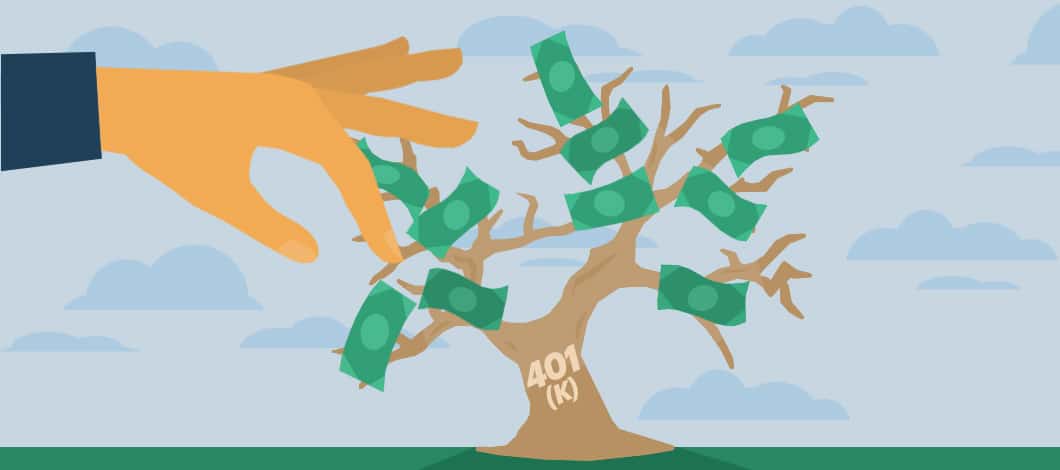
401(k) Loan Repayment Rules
401(k) plan participants will be required to pay a predefined amount along with 401(k) loan interest over the loan term. Both the principal and the interest are repaid to the employee’s account.
Generally, employees will have up to 5 years to repay the loan and must make at least quarterly payments, although most employees opt to use payroll deduction to repay loans. 401(k) loan repayment payroll deduction is an easy way for employees to repay their loan obligations by having principal and interest paid back during each payroll period.
The 401(k) loans rules the IRS has in place allow for an exception to the 5-year requirement if the 401(k) loan is used to purchase a home that qualifies as an employee’s permanent residence. Longer repayment terms may be offered ranging up to 20 years.
What Happens to a 401(k) Loan If an Employee Is Terminated?
If an employee leaves a job with an outstanding balance, they are required to repay the loan. Employers may require immediate payment for the amount remaining or offer a payment plan. While more than 90% of all 401(k) loans get repaid, defaults from terminated employees are common. 86% of employees that leave their jobs default on their loan.
If employees fail to repay the loan, it will be considered in default. The outstanding balance will be treated as income, subject to taxes and an early withdrawal penalty of 10% if plan participants are less than 59 and a half years of age.
The Pros and Cons of 401(k) Loans
There are pros and cons of 401(k) for both employees and employers.
Pros and Cons for Employees
Borrowing from a 401(k) does have some advantages for employees. A loan lets participants avoid paying taxes and penalties they would otherwise have to pay if they took an early withdrawal.
Because employees are repaying the amount to their own accounts, any interest paid gets returned to them.
Is It a Good Idea to Borrow From a 401(k)?
While investment advisors generally discourage the idea of borrowing against your 401(k) because of the impact on your retirement savings, there are times when employees need cash.
It’s generally easy to apply for a 401(k) loan and approval is quick. Unlike a consumer loan, there is no credit check required and it doesn’t show up on a consumer credit report. Those with poor credit may not qualify for a personal loan from a bank or other lender, but they will be able to qualify for a 401(k) loan depending on an employer’s plan.
In an emergency, a 401(k) loan may be a better option than other alternatives.
-
For Example
Employees can get funds quickly rather than having to resort to a title loan or payday loan that charges an extremely high interest rate.
While reducing retirement savings, a 401(k) loan may be a better option for some than racking up credit card debt — especially for those cards with higher interest rates.
Many consumers may not have the funds necessary for a down payment when buying a home. Borrowing from your 401(k) may be the only way someone can buy a home.
Employees should consider the idea of borrowing from a 401(k) carefully, however. One survey of those taking a loan out of their 401(k) showed that 44% said they regretted the decision.
Is It a Good Idea to Borrow From a 401(k)?
There are some significant downsides when employees borrow on their 401(k), however.
When employees borrow against their 401(k), they are removing money from the account that would otherwise grow tax-free. The less money that is in the account, the less money that grows over time.
This lost opportunity cost can be significant. Employees miss out on growth potential during periods of high market returns.
Here’s an example provided by the Bureau of Labor Statistics: To illustrate, taking a $5,000 loan on a 401(k) balance of $10,000 with an annual compounded return of 6 percent results in a reduction in the total account balance from $57,435 to $28,717 after 30 years (assuming that the loan isn’t repaid). The $5,000 401(k) loan will end up costing employees more than $28,000 in savings.
About Repayment
Employees that borrow money from their retirement savings plans also tend to contribute less to their plan. Many offset the loan repayment amount by reducing their contributions. About 57% of those taking out loans decreased their retirement plan contribution rates while they are paying back loans. This reduces overall contributions and can impact long-term retirement plans.
If employees reduce the amount they are contributing, they also may not qualify for any matching plans provided by employers.
Some 401(k) plans don’t allow employees to contribute to their 401(k) plan while loans are being repaid. This stops retirement savings from growing and prevents employees from taking advantage of any employer matching programs.
The power of a 401(k) lies in how it grows over time using compound interest. Because earnings are reinvested, they are added to the balance. Not only do participants get interest on their contributions but they get interest on the interest that’s been previously earned. When participants take out a 401(k) loan, there’s less money in the account. That means less growth.
401(k) plans let participants save money in their retirement accounts with pre-tax dollars. However, conventional 401(k) plans also require repayment on the loan from after-tax earnings.
One of the benefits of a 401(k) plan for employees is that it’s portable. If a participant changes employers, they can roll over funds into an Individual Retirement Account (IRA) or a new employer’s qualified 401(k) plan. Taxes continue to be deferred. When there is a loan outstanding, however, the loan balance must be repaid to avoid penalties and taxes.
There is one other downside for employees borrowing from their 401(k) and using payroll deduction to repay it. While they get the cash they need sooner, their take-home pay is reduced for the duration of the loan.
Pros and Cons for Employers
Because employees are taking loans out against their retirement savings, there’s little cost to the employer. Even if loans aren’t repaid, the shortfall and potential tax implications fall on the employees rather than the employer.
Here are some of the other pros and cons of offering 401(k) loans for employers, including 401(k) benefits for employers.
What Are the Benefits of Offering 401(k) Loans for Employers?
Offering loans can help employees feel more comfortable in signing up for the company 401(k) plan knowing they can access their savings in an emergency. This can encourage participation.
Nearly 78% of employees say they are more likely to stay with an employer because of their benefits program, according to Willis Towers Watson. Employees that have outstanding 401(k) loans may be more likely to stay with employers even longer. Knowing that they are responsible for repaying any outstanding balance or being faced with taxes and penalties, they may be inclined to remain with a company at least until the loan is repaid.
Strong benefits programs can help attract top-quality job candidates as well. While employees want a variety of benefits, a study of 521 employees by Justworks showed that 37% ranked a 401(k), retirement plan or pension plan as most important when deciding to accept a job offer.
What Is the Downside Of Offering 401(k) Loans for Employers?
Depending on your plan, there may be increased plan expenses to facilitate loans. It also may create an additional administrative burden to manage and process loans.
Since 401(k) loans aren’t always in an employee’s best interest as they are sacrificing potential long-term retirement savings, employers should provide education on participant risk to employees about the potential downside. There may be a cost to this, although most 401(k) plan providers will offer educational content.
401(k) Loan: Take Careful Consideration
As with any other financial decision, taking out a 401(k) loan should be considered carefully.
There are benefits and disadvantages dipping into this retirement pool. Those considering 401(k) loans should seek advice from financial advisers.



